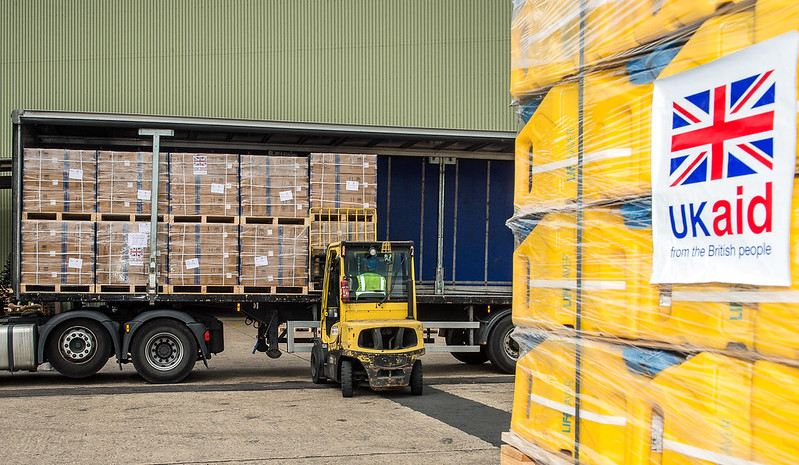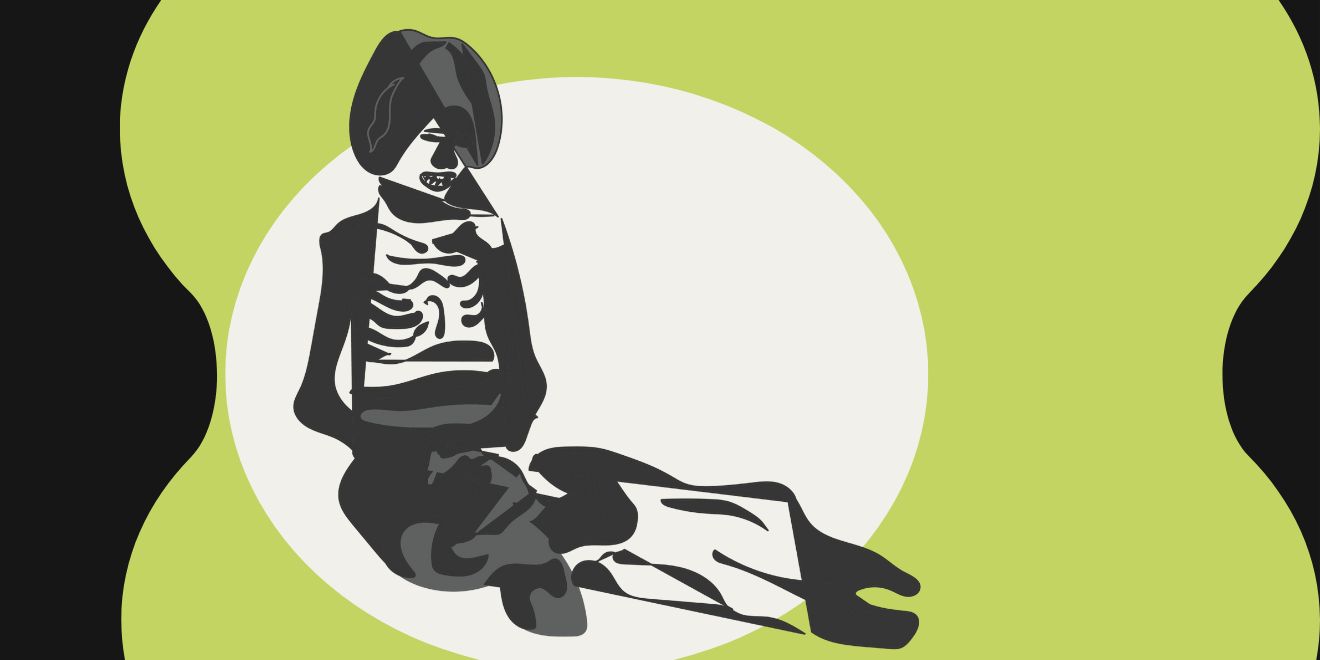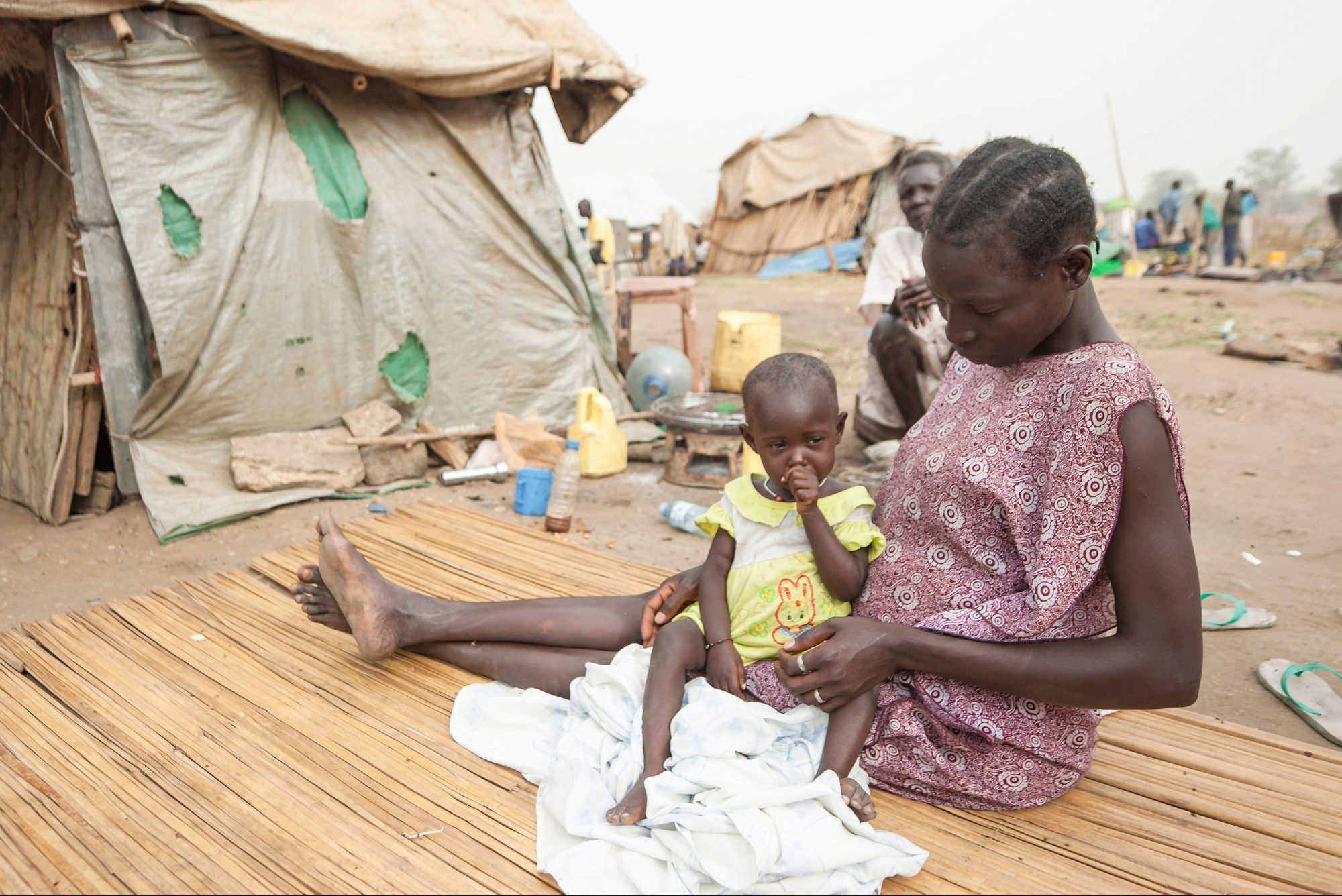The basic charitable impulse is food for the hungry, a bed for the night for the homeless, protection from violence for the vulnerable and scared. For half a century, as the humanitarian international has become bigger, more professional, and more effective, aid givers have also been imbued with a general sense that the world is getting better. Until a few years ago, that hope was being realized. Hunger was declining, famines were becoming rare.
Not so today. In a world of resurgent mass starvation, humanitarians need to add some new words to their lexicon. Below are a few. Some are recent coinages, others older. Many of them characterize the men who make famines or oppose humanitarian action.
Atrocity Famine
There’s no definition of ‘atrocity famine’ as such. The purpose of the term is to include disasters that don’t easily fit the layperson’s understanding of ‘famine’, but which involve mass dying from hunger, disease and exposure, caused by attacks on civilian populations.
The notion of famine as atrocity is central to my book, Mass Starvation. Chapter 10 is entitled ‘The New Atrocity Famines’ and includes examples from Darfur, northern Uganda, Syria, Yemen, South Sudan and north-eastern Nigeria.
Sub-categories include counter-insurgency famines, insurgency famines, siege famines, and genocidal famines. There are also collusive famines, in which opposing belligerents cooperate in profiting from ransacking, extortion or siege.
Counter-Humanitarian
I introduced the term ‘counter-humanitarian’ in Chapter 10 of Mass Starvationto refer to people who reject humanitarian norms. They are very different from those who critique of the effectiveness of humanitarian action. They should also be distinguished from people who believe that humanitarian outcomes might be better achieved through means that are not explicitly humanitarian, for example by improving markets or changing policies.
Counter-humanitarianism is an array of political and ideological practices that deny the value of humanitarianism as such. Counter-humanitarians may act out of ideology, out of fear or because they have other political and military priorities that, they believe, trump humanitarianism. They may consider some lives as possessing lower value or no value.
There can be tactical counter-humanitarians and ideological counter-humanitarians. The former weigh the outcomes and decide they don’t care, or don’t care enough. Their ‘priority regime’ (see entry below) does not sufficiently value alleviating suffering. The latter take a principled stand in favor of starvation.
Doom Loop
The ‘humanitarian doom loop’ is a term used by the World Food Programme to refer to the implications of reduced funding. Ideally, relief aid should be activated when populations are in stage 2 (‘stressed’) of the five-stage Integrated food security Phase Classification system and rolled out at scale when they are in stage 3 (‘crisis’) in order to prevent deterioration into stages 4 (‘emergency’) and 5 (‘catastrophe’ and ‘famine’). With cuts in humanitarian funds relative to need, agencies such as WFP are compelled to limit their assistance to people in stages 4 and 5. In turn this implies that, unless other conditions change for the better, communities in stage 3 will descend into emergency or famine. The World Bank has estimated that early relief interventions can be effective at preventing the need for later humanitarian spending at a ratio of 1:2.8.
Famine Crime
A famine crime is an act of commission or omission, or policy, that contributes to creating conditions of mass starvation. I used the term in my 1997 book of that name.
In his paper, ‘Famine crimes in international law,’ David Marcus categorized ‘faminogenic actions’ into four types.
A first-degree famine crime is committed by an authority determined to exterminate a population through starvation or force it into unconditional submission. These are instances of genocide or the crime against humanity of extermination.
Second degree famine crimes are characterized by recklessness, committed by an authority pursuing policies that are already known to have faminogenic tendencies. These are cases of oblique intent: the perpetrator may not intend to cause starvation per se, but his actions predictability and knowingly have that result.
The third degree of culpable famine causation is when authorities are indifferent to suffering that they may not themselves have created, for example when they fail to respond to a drought-induced food crisis.
Fourth degree famines are pure natural disasters, that occur when the authorities are simply incapable of responding.
It will be clear that famine crimes are a broader category than starvation crimes. Some of them may not even be criminal (e.g. economic policy decisions). What they have in common is that they contribute to the evident process or foreseeable outcome of mass starvation.
Examples may include: censorship and other acts abrogating civil and political liberties such as denying rights to public protest; economic policy choices such as collectivization of agriculture, which may involve coercion and land dispossession; or refusing to enact relief measures when there is warning of a food crisis.
Priority Regime
Paul Howe introduced ‘priority regime’ in a paper in the collection The New Famines, edited by Stephen Devereux.
The use of the term ‘priority’ explicitly recognizes that choices and trade-offs are an integral part of decision-making. Since famine prevention (or creation) is only one of many priorities that exist in the globalizing world, it is necessary to disentangle its relationship with others that simultaneously have claims to immediacy and importance.
The ‘priority regime’ lens is useful for ascertaining when and why authorities may downgrade famine prevention or relief. At times this can morph from being merely an instrumental disinterest into being a principled stand.
Famine Denial
Famine denial is widely observed but hasn’t yet been systematically studied. But we can draw on the literature on atrocity denial, such as Stanley Cohen’s classic States of Denial, along with the study of agnatology—the study of ignorance.
Cohen identifies three main forms of denial: ‘literal (nothing happened); interpretative (what happened is really something else) and implicatory (what happened is justified).’ Sometimes, they are tried in sequence, sometimes simultaneously, as with the apocryphal US army spokesman in Vietnam, ‘There was no massacre and the bastards got what they deserved’.
Paradigmatic instances of manufactured ignorance include the persistent efforts by tobacco and fossil fuel industries to cast doubt on the science proving the harmful impacts of their products, including by putting cranks and hired industry propagandists on an equal footing with reputable scientists, giving the misleading impression that the facts are open to dispute. Ethiopian government officials and some of their fellow travellers and hired hands were busy manufacturing ignorance during the starvation of Tigray in 2021-22.
Cases of famine denial can fall into any or all of these categories.
A regrettable side-effect of the rigorous standards for determining famine used by the Integrated food security Phase Classification (IPC) system is that it opens the door for culpable authorities to use various stratagems for denial. One is by denying monitoring access to the scene of the crime, so that there’s a manufactured veil of ignorance. They say, ‘how can you know?’ Another is disputing the minutiae of the evidence, including challenging the methods of gathering and analyzing it, so as to put the authenticity of the facts under a cloud. A third is trivializing catastrophe. This takes the form of minimizing the starvation and other suffering associated with a humanitarian ‘emergency’ or ‘catastrophe’ that doesn’t cross the threshold into ‘famine’. It amounts to arguing that it is acceptable to starve people so long as there is no official determination of IPC phase 5 ‘famine’.
Illiberal Multilateralism
Many multilateral institutions—notably the United Nations, the European Union and the African Union—are founded on liberal, progressive and universal principles. But there are other forms too.
Illiberal multilateralism is state-centric collective security based on sovereignty and indifference to what states do within their own borders. It elevates non-interference in other states’ internal affairs over non-indifference to grave crimes. It prioritizes states’ rights over human rights.
Stunted multilateralism refers to a new inter-state institution or system conceived and nurtured without progressive or liberal norms.
Emaciated multilateralism refers to an existing multilateral organization or system drained of its nourishing liberal and progressive norms and principles that used to nourish it.
The custodians of those principles are states party to their charters, the organizations’ senior public servants and associated institutions such as courts. Any or all of these can be active or complicit in depriving a liberal multilateral institution of its life-force.
The end result may be a zombie institution, mechanically active but lifeless, and impossible to kill.
Permanent Emergency
In the era of permanent emergency, populations are chronically unable to achieve development outcomes and there’s growing dependence on humanitarian aid to protect a minimum level of livelihoods and communities, and failing that, to stop descent into mass starvation.
The term ‘permanent emergency’ was first used in this way by Mark Duffield thirty years ago. He used it to deepen the then-widely used notion of ‘complex emergency’, placing it in the global context of the North’s institutional accommodation with unresolved political crisis in the South, putting in place a threadbare safety net instead of tackling the political drivers of armed conflict and state breakdown. His insight still holds.
Permanent emergency can be produced by the quest by a state or people for permanent security. In his reframing of the problem of genocide, Dirk Moses defines the central issue as
the striving of states (and armed groups seeking to found states) to make themselves invulnerable to current and future threats. Permanent security is the unobtainable goal of absolute safety that necessarily results in civilian casualties by its paranoid tendency to anticipatory violence.
Moses mentions starvation only in passing, but his logic applies.
Starvation Crime
Starvation is prohibited under various bodies of law. Among these are: International Humanitarian Law (Additional Protocol I of the Geneva Conventions, Article 54), the Rome Statute, as a war crime (Article 8(2)(b)(xxv)) and as a crime against humanity, (Article 7(2)(9)(b)), and the Genocide Convention (Article 2(c)).
The term ‘starvation crime’ was coined by Bridget Conley and me in 2019:
To focus attention on how existing law might apply to the conditions that produce mass starvation, we propose the term ‘starvation crimes.’ A portmanteau term, that draws on David Scheffer’s coinage of the term ‘atrocity crimes’, ‘starvation crimes’ does not refer to a legal category as such, but rather brings together a range of crimes under different provisions of law, in a manner that gives them political salience. The relevant legal prohibitions, many of which apply both in times of peace and conflict, may apply to situations that include deprivation of food, water and other objects and activities indispensable to survival, alongside a range of other acts that heighten the adverse effects of such deprivation, by compounding hunger and a degraded health environment with exposure, displacement, direct violence and lack of access to health systems. Together, these acts drive the processes of mass starvation.
The core concepts shared by starvation crimes are the deprivation of objects indispensable to the survival of the civilian population and inflicting conditions of life calculated to bring about the destruction of part of a population. ‘Objects indispensable to survival’ include food and food production and distribution systems, medicine, water, shelter, and maternal care for children.
Obstructing relief aid can be a starvation crime.
The word ‘starvation’ in ‘starvation crimes’ refers to the act of one person or entity starving another. It does not refer to the process of an individual becoming more and more malnourished, nor to the outcome, the clinical condition of severe acute malnutrition or life-threatening starvation.
War Economy
The term ‘war economy’ was widely used in the 20th century to refer to the command economies of industrialized countries under extreme pressure to mobilize finance and resources to fight a war or prepare for one. The main instruments for war financing include debt (domestic and foreign), taxation, and monetary policy. Other instruments are pillage or confiscation of the assets of the enemy, targeted individuals and companies, or occupied territories. The United States has, uniquely, financed its last 22 years of war through domestic borrowing.
‘War economy’ is also used for the intermixing of armed conflict, gangsterism and profiteering, with opposing belligerents often colluding in sustaining illicit activities and keeping the war going. This is characteristic of ‘new wars.’
Economic warfare can consist of direct attacks on the productive base of an adversary and indirect attacks through restrictions on the movement of goods, labor and capital, using blockade and financial sanctions. In extremis, these are famine crimes.
Photo: UK aid being unloaded off lorries to be put on the plane at Brize Norton in Oxfordshire, DFID (CC BY-NC 2.0 Deed)



